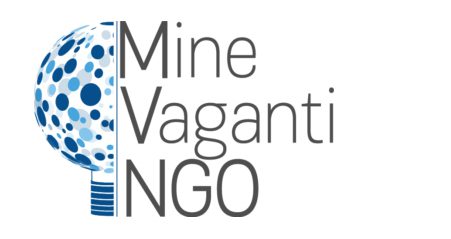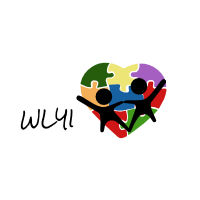Therap-Edu for Interculturality
Therap-Edu for Interculturality is a 24 months Strategic Partnership supporting youth workers to develop innovative and highly focused competences for social inclusion of migrants in condition of psychological vulnerability. It involves different organizations from 5 countries (Italy, France, Russia, Estonia, and Germany) to develop a multidisciplinary training course and supporting tools by know-how exchange and cross-fertilization of competences. The target group is staff engaged in delivering socio-educational activities for minor and young migrants.
In their daily professional practice with migrants, youth workers experience misunderstandings and barriers arising from a scant knowledge of migrant’s cultural worlds, as well as from psychological discomfort experienced by migrants. These factors hinder youth workers’ capability of establishing an effective exchange and educative relationship with migrants, especially those suffering traumas and post-migratory stressors. Addressing these issues, TEI project intends to develop an e-course to deliver transcultural psychology training for youth operators engaged with underaged and young migrants aged 15 – 29. In 2019, some 17.700 Unaccompanied Minors (UAMs) applied for international protection in the EU+28, a number increased by 13% with respect to 2018. Almost half of all applications were lodged in just two EU+ countries, which are Germany (15 %) and Greece (19 %). Nonetheless,
UAMS applications can variate significantly from one year to another: while in Italy the number decreased by 83% from 2018 to 2019, Austria experienced a doubling of the phenomenon (+121%). [EASO Annual Report 2018]. The UNICEF Situation Reports have warned in the previous years that the long stays in sub-standard reception facilities, xenophobia, and limited access to services undermine the protection of young asylum seekers in EU States.This situation is alarming since a child and young migrants traveling through irregular migration pathways have often been exposed to traumatic experiences associated with several psychological or behavioral disorders (Migration Data Portal, OIM 2017; A child is a child, UNICEF, May 2017).
TEI aims at supporting effective social integration of migrant youth by expanding youth workers/ social educators’ skills and attitudes to engage culturally and linguistically diverse young migrants in the condition of psychological vulnerability. The project is aligned with the EU Youth Strategy (2019-2027), whose aim is to “Enable young people to be architects of their own lives, support their personal development and growth to autonomy, build their resilience and equip them with life skills to cope with a changing world”. This priority is in line with the Action Plan on Protecting Refugee and Migrant Children in Europe (2017-2019), as well as the May 2018 EU Parliament Resolution on Children in Migration calling on the EU States to build capacity for the reception of migrant children, stressing “the importance of building individual plans based on the needs and other specific vulnerabilities of each child”.
TEI will deliver on the priorities of the social inclusion of migrants and increased intercultural awareness by allowing youth workers to acquire interdisciplinary competencies to frame individual behavior within cultural dynamics, identify and support vulnerable migrants.
Start: 2021-02-01 – End: 2023-01-31
Project Reference:
EU Grant : 161.584,00 EUR
Programme: Erasmus+
Key Action: Cooperation partnerships in youth
Action Type: Youth mobility
Project Partners:
Coordinating Organization:
Association Euro-Méditerranéenne Des Exchanges, Volontariats,
Evénements Peace – France
Partner organizations:
1. Intercultural Youth Dialogue Association IYDA e.V.- [Germany]
2. MINE VAGANTI NGO – [Italy]
3. SIHTASUTUS NOORED TEADUSES JA ETTEVOTLUSES – [Estonia]
4. INSTITUTE Namoi – [Russian Federation Russian Federation Veliky Novgorod]
Project TOPICs:
Access for disadvantaged
Integration of refugees
Disabilities – special needs
TARGET GROUPs
The age of participants will be + 21 years old. Participants’ selection will be performed by each partner in its own country.
PROJECT’S OBJECTIVES
· To increase the level of cultural sensitivity of youngsters through diversity appreciation, direct communication and exchange, building trust with different people and developing the ability to think critically, to assess honestly personal behavior towards other people and cultures.
· To break stereotypes and prejudices about the different cultures by enhancing the awareness of young people about intercultural communication.
· To implement youth policy and equal opportunities which enable young people to develop skills in gender equality, human rights, peacebuilding, ending violence, conflict transformation, tolerance and non-discrimination.
· To promote and provide equal access to formal, non-formal and informal education. Empower youth to develop skills in social entrepreneurship and employment for combating exclusion and increasing the role of youth in the development of community.
· To create more friendly and safe environment full of respect, tolerance, mutual cultural understanding.
· To build networks of international contacts in order to participate actively in society and to develop sense of European citizenship and identity.
· To create opportunities for young people to learn how to learn and how to reach to the personal and professional development through formal+nonformal+ distance education. Facilitation of multi-sectoral research and implementation consulting in the field of social and cross-cultural communication, conflict resolution.
Project ACTIVITIES
– Training format
– 1 handbook
– 1 e-course




